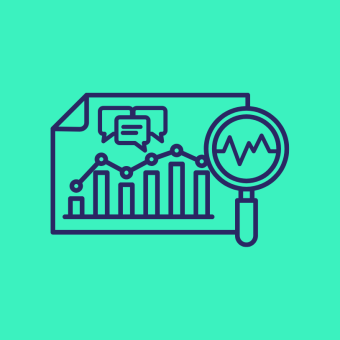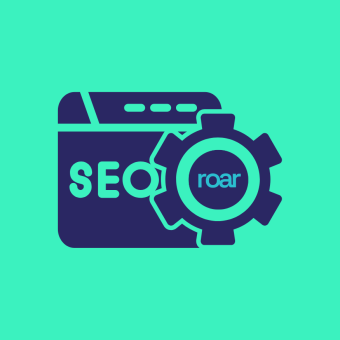Artificial Intelligence (AI) has been quietly reshaping marketing for years, but now its influence is impossible to ignore. What started as experimental tools with isolated use cases has become a cornerstone of the modern marketer’s toolkit.
In 2025, AI has become the marketing engine. Powering how we create, target, and deliver campaigns, helping brands connect with their audiences in ways that were previously unimaginable.
For us marketing leaders, understanding the practical ways AI is being used is no longer a “nice-to-have” – it’s essential. AI is streamlining repetitive processes, making customer interactions more meaningful, and providing the insights teams need to make better and faster decisions. To first understand the underlying mechanics of LLMs like ChatGPT, and how to use them responsibly in your workflow, try our no nonsense guide to AI, updated for 2025.
The question now isn’t if your marketing team should adopt AI, but how to implement it most effectively. Here are the top 10 ways we’ve found marketers using AI in 2025:
1. AI-powered content creation:
Producing high-quality content is both time-consuming and resource-intensive. But AI tools like ChatGPT and Jasper AI have become indispensable in the creative process. These tools help brands write blog posts, product descriptions, and social media captions in a fraction of the time it used to take.
Take Marks & Spencer, for example. They’re using AI to generate personalised email campaigns and seasonal blog posts tailored to customer preferences. The result? A faster turnaround time and messaging that resonates deeply with their audience.
Why it matters: AI is helping teams focus on what to say, rather than spending all their energy on how to say it. This shift means creative teams can prioritise strategy and creativity, while still producing consistent, high-quality content at the scale 2025 demands.
2. Personalisation and customer experience
Personalisation has always been a marketing buzzword, but AI is taking it from {first_name} to real, accurate personalisation that resonates with your users. Retailers like Boots UK are using AI-powered engines to recommend products based on individual browsing and purchase history. These systems don’t just offer generic suggestions—they deliver tailored experiences that feel genuinely personal.
What it means for the industry: Marketing is shifting from broad strokes to individual touches. People are wiser than ever to ‘marketing tricks’ and ‘hacks’. To truly stand out, you have to be authentic.
3. Smarter customer support with AI chatbots
The 2025 chatbots is not clunky or robotic. They’re polished, intelligent, and surprisingly helpful. British Airways has fully embraced AI-driven chatbots to manage booking queries, flight updates, and even customer complaints. These systems operate 24/7 and handle routine questions with ease, freeing up human agents to focus on more complex issues.
Why should your try it: Customers expect quick, seamless service—and chatbots are delivering just that. For larger companies, they’re a cost-effective way to ensure customers feel supported at all hours.
Roar example: Mark the Marketer
Mark is an AI tool who know’s he’s an AI tool. Built using CoR (Chain of Reasoning) to ensure outputs that are refined and accurate. Mark “thinks” before responding and shows you this thought process too.
Try him for yourself, ask Mark to edit your ad copy; or suggest A/B tests on your next email campaign.
4. Predictive analytics: Marketing with precision
Predictive analytics is one of AI’s most powerful contributions to marketing. By analysing past behaviour, these tools help teams anticipate what customers are likely to do next. For instance, Tesco uses predictive models to forecast product demand, ensuring shelves are stocked with exactly what customers want, when they want it. Predictive analytics enables smarter decision-making, from optimising campaigns to reducing wasted spend.
5. Ad campaign optimisation
AI is taking the guesswork out of digital advertising. Platforms like Google’s Performance Max campaigns use machine learning to automatically adjust ad targeting, bidding, and placements. A UK-based e-commerce retailer recently reported a 35% boost in ROI simply by adopting this AI-powered system.
Why this matters for decision-makers: Every pound of marketing spend needs to be accounted for. AI ensures your budget is spent in the most impactful way possible, without constant manual intervention.
6. The Future of search
Search marketing is undergoing a seismic shift in 2025, driven by breakthroughs like the UK roll out of Gemini Search Overviews. Gemini Overviews blend conversational AI with real-time data insights.
Imagine typing a query into Google and getting not just a list of links, but a personalised conversation or even a product recommendation based on your search history. This evolution is creating richer experiences for users while unlocking new opportunities for brands to connect at key moments.
Enter Generative AI Optimisation (GEO). An emerging marketing service that optimises content specifically for AI-driven search platforms. GEO allows marketers to ensure their content is visible in AI by focusing on the structure, tone, and intent AI systems prioritise. For instance, leading UK brands like John Lewis are leveraging GEO strategies to ensure their product descriptions and blog posts are perfectly suited for Gemini-driven search queries.
Why it matters: AI-powered search is shifting the focus from keyword-based tactics to intent-based discovery. With tools like Gemini and GEO, businesses can ensure they’re not just visible, but relevant, in a digital landscape where personalisation and user experience drive conversions.
7. AI in influencer marketing
Influencer marketing has always involved an element of guesswork. Is this the right audience? Does this creator align with my brand? But AI is helping brands take a more scientific approach. Tools used by ASOS, for example, can identify influencers whose audiences align with the brand’s values and even predict campaign outcomes.
This is particularly useful for larger organisations managing dozens of influencer partnerships. AI cuts through the noise, ensuring time and money are invested in the right collaborations.
8. Social listening with AI
AI-driven social listening tools are helping brands stay connected to their audiences in real-time. Virgin Media, for example, uses these platforms to track customer sentiment, respond to feedback, and even identify emerging trends before their competitors do.
Industry impact: Marketing has become more agile, with brands able to adjust campaigns based on real-time insights. This responsiveness builds trust and keeps companies ahead of the curve.
9. Unique AI news summariser tool
Every day, hundreds of marketing, AI, and tech headlines hit our screens. Some matter. Most don’t. But buried in that noise are the ideas, shifts, and signals that can help us stay ahead. That’s why we built our own AI-powered news summariser, not just to keep up with the headlines, but to cut through the noise and zero in on what truly matters.
10. Generative AI in design
Creative teams are also benefitting from AI’s capabilities. Tools like DALL-E and Canva AI generate professional-quality visuals, from social media graphics to logos. UK startups, in particular, are using these tools to produce eye-catching content without the need for expensive design agencies.
What this means for marketing: AI isn’t replacing creativity—it’s enhancing it. By handling routine tasks, these tools allow creative teams to focus on innovation and big-picture ideas.
What’s next for AI in marketing?
The marketing industry is buzzing with both excitement and caution about AI. On one hand, these tools are helping teams work smarter, faster, and more strategically. On the other hand, there are concerns about data privacy, over-reliance on automation, and the need to keep the “human” touch in marketing.
The key is to strike a balance. AI is a powerful ally, but it’s not a replacement for strategic thinking or genuine human connection.
AI isn’t just a tool; it’s becoming the backbone of modern marketing. From crafting personalised experiences to optimising ad campaigns, AI is giving brands the edge they need to stay competitive.
For larger organisations, the message is clear: now is the time to embrace AI, not out of fear of being left behind, but because it offers opportunities to connect with customers in more meaningful ways. The future belongs to those who can combine the precision of AI with the creativity and empathy of human marketers.



